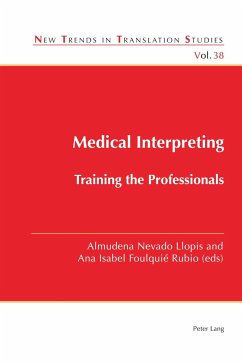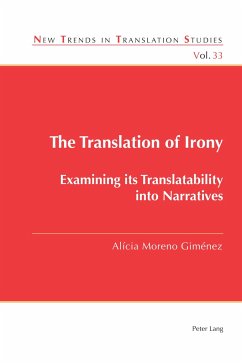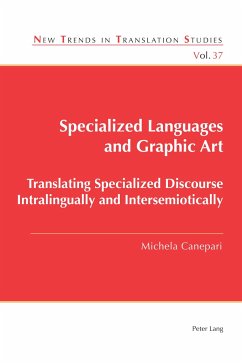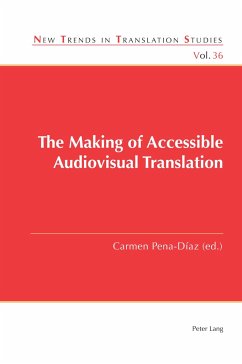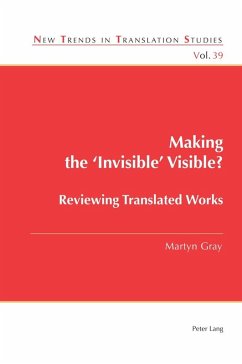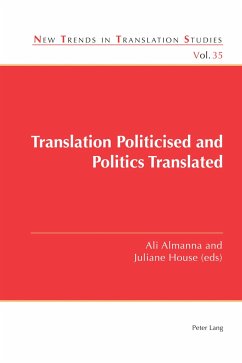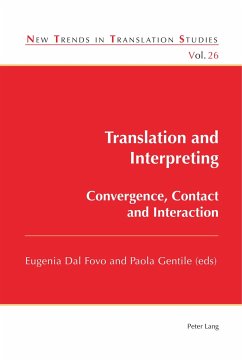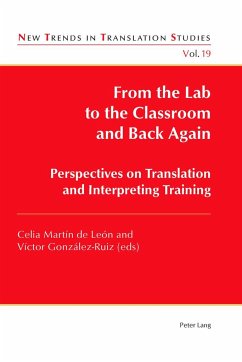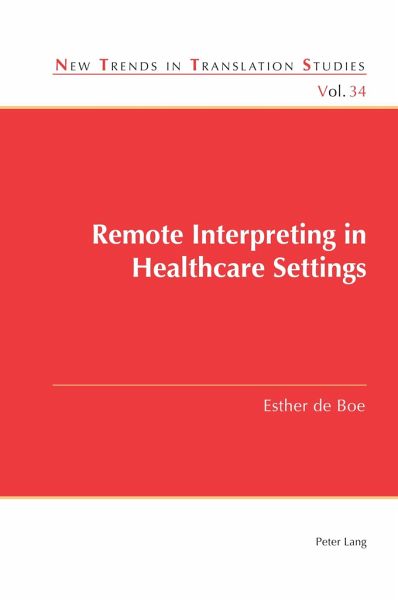
Remote Interpreting in Healthcare Settings
Versandkostenfrei!
Versandfertig in 6-10 Tagen
63,95 €
inkl. MwSt.
Weitere Ausgaben:

PAYBACK Punkte
0 °P sammeln!
The increasing practice of remote interpreting (RI) by telephone and video link has profoundly changed the ways in which interpreting services are being delivered. Although clinical research on RI has reported positive results, empirical research in other settings, such as legal contexts, has demonstrated that RI can affect the quality of interpreter-mediated communication.This book investigates the possible effects of using RI on the quality of healthcare interpreting. Central to the research design are three series of simulated interpreter-mediated doctor-patient encounters, each involving a...
The increasing practice of remote interpreting (RI) by telephone and video link has profoundly changed the ways in which interpreting services are being delivered. Although clinical research on RI has reported positive results, empirical research in other settings, such as legal contexts, has demonstrated that RI can affect the quality of interpreter-mediated communication.
This book investigates the possible effects of using RI on the quality of healthcare interpreting. Central to the research design are three series of simulated interpreter-mediated doctor-patient encounters, each involving a different interpreter and using three different interpreting methods: face-to-face interpreting, telephone interpreting and video interpreting. These sessions were video recorded, transcribed and annotated according to categories previously established in interpreting studies. First, quantitative analyses of miscommunication and interaction management were carried out toidentify potential relationships between message equivalence issues and interactional issues and to establish the possible influence of environmental and technological factors. These data were submitted to comparative, qualitative analyses, which were triangulated with the findings from the participants' perceptions, collected by means of thirty post-simulation interviews. The insights generated by this work are highly relevant for all users of RI to anticipate and overcome communication problems.
This book investigates the possible effects of using RI on the quality of healthcare interpreting. Central to the research design are three series of simulated interpreter-mediated doctor-patient encounters, each involving a different interpreter and using three different interpreting methods: face-to-face interpreting, telephone interpreting and video interpreting. These sessions were video recorded, transcribed and annotated according to categories previously established in interpreting studies. First, quantitative analyses of miscommunication and interaction management were carried out toidentify potential relationships between message equivalence issues and interactional issues and to establish the possible influence of environmental and technological factors. These data were submitted to comparative, qualitative analyses, which were triangulated with the findings from the participants' perceptions, collected by means of thirty post-simulation interviews. The insights generated by this work are highly relevant for all users of RI to anticipate and overcome communication problems.





